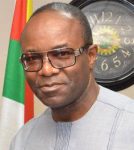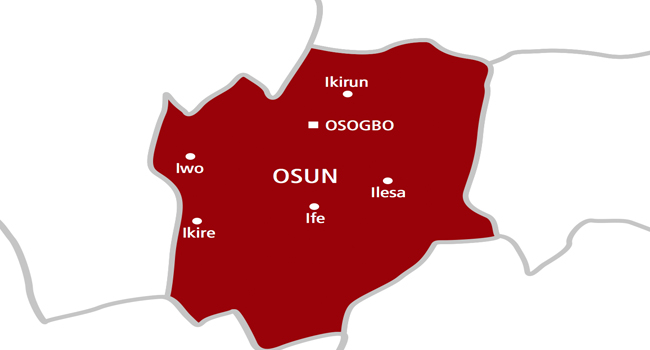Niger Delta: Osinbajo’s Evangelical Outreach and Matters Arising, By Ifeanyi Izeze


Nothing best captures the ongoing peace outreach mission of the Acting President, Prof Yemi Osinbajo, in the Niger Delta oil producing states as the Holy Bible in 1 Corinthians chapter 9 verse 16: “For if I merely preach the gospel (good news), I have nothing to boast about, for I am compelled that is, absolutely obligated to do it. Woe to me if I do not preach the good news of salvation (Amp).”
No doubt, the Acting President’s sermon sounds like “The Great Commission and the necessity to obey it.” And what is the good news that the he has been going across the Niger Delta states to deliver? It is that “Niger Delta development will henceforth be community-driven for oil-bearing areas to have direct impact of oil; and that the federal government would begin a partnership with all the stakeholders in the oil industry to concentrate development in oil-producing communities.
“So, we come today on behalf of the President, Commander- in- Chief with my cabinet colleagues and heads of relevant agencies to propose a new vision and to signpost a new era to the people of the oil-producing communities and Nigeria.
“The federal government will begin a partnership with oil-producing communities, the local government, the oil companies, the private sector and civil society organisation for the rapid development of these communities.”
Ask me and I would bluntly tell you that there is nothing new at all in what the Acting President is proposing to the region that has not been serially proposed or rather promised before by operators of past Nigerian governments. However, the only thing that seems new to the people is Osinbajo’s demeanour towards their peculiar situation and his human-faced delivery of the message, which can aptly be described as the real “breath of fresh air” to the region. The delivery of the message seems to be achieving more that the actual content and this is commendable. There is a manner you keep telling someone to go to hell that one day he makes up his mind to actually embark on that trip and see what would happen, this is what is happening in the Niger Delta.
Anybody who thinks the oil companies can engage the state governments and communities on issues affecting a particular state is getting it all wrong. That responsibility should be given to an inter-agency platform between the Ministries of Petroleum Resources and the Niger Delta, as well as the NDDC. Then this new collaboration should be helped by the Presidency and the civil societies to develop genuine sincerity and the will-power to be honest and transparent in implementing this new vision for the region.
It is well known and also publicly acknowledged that the Niger Delta crisis, which caused about a 45 percent loss in Nigeria’s oil production, coupled with the not-too-impressive oil market performance, worsened the financial challenges of the Muhammadu Buhari administration right from onset, and the arrogance and careless talks of the officials around the president only added salt to injury.
True, as said by the Minister of State for Petroleum, Ibe Kachikwu, at a workshop, Oil Sector Militancy Challenges…Roadmap to Closure, “despite all efforts made by successive administrations to tackle the militancy (agitation) in the Niger Delta, a permanent solution was never found.”
Previous steps taken by the federal government to tackle the inhuman neglect of the Niger Delta oil producing areas including the setting up of the Oil Mineral Producing Areas Development Commission (OMPADEC) the precursor to the current conscription- the Niger Delta Development Commission (NDDC) and the 13 percent derivation for oil producing states, did not achieve much because of the insincerity or rather outright deceit, and absence of consistency by those who ran the successive administrations. It did not start with the current Buhari-led administration. It has been there even before Obasanjo’s administration and it went on with other governments – Yar’Adua’s and Jonathan’s.
It is noteworthy that, as planned by the federal government to adopt a ring-fenced approach and stop dealing with Niger Delta militancy as a national issue rather adopt a state-by-state approach, there are serious issues to be considered in the planned decentralisation of the Amnesty Programme.
According to the Minister of State for Petroleum, “the Amnesty Programme would be launched on a state-by-state basis to create opportunities for 5,000-10,000 youths in each state.” My take is that this looks like a dream project instituted to fail right from onset. The problem in it would be that everybody in the state – youth, men, women – will become militants over night seeking amnesty from the government, and anybody turned back, would actually return to the creek or bush to become a full-blown armed militant with some levels of nuisance value.
The question is: whose responsibility will it be to identify who is a militant in each state – area boys, community leaders, council chairmen, or state governors? There is going to be a huge problem in implementing the initiative as proposed and to avert this, my suggestion is that we totally drop this entire idea of amnesty, as it creates a sense of criminals and miscreants looking for forgiveness. It should be replaced with either a youth or graduate employment scheme that would be christened differently, that way, our youths will stop thinking they need to be militants or criminals before they can benefit from whatever programme the federal government is bringing to their area as oil producing communities.
As this administration is now determined to be very bullish in finding final solutions to the agitation and restiveness in the region as disclosed by Kachikwu at a talk show, “Oil Sector Militancy Challenges…Roadmap to Closure,” there is a need to quickly come out with a time-frame development agenda. This should be drawn up solely by the affected areas and then discussed with other stakeholders (government, oil companies, etc.) to prioritise and agree. The affected communities should agree with other parties on the items that must be completed say yearly, quarterly or even monthly. The efforts in the new vision canvassed by the federal government must be measurable. we will just be throwing money at the problem without achieving anything.
If the federal government display sincerity of purpose to the agenda, tangible milestones in terms of infrastructure development would be achieved every year and with this arrangement in place it would become unreasonable for militants to continue destroying oil assets in the area. Truth be told, at the core of the militancy in the Niger Delta is economics. God bless Nigeria!
Ifeanyi Izeze writes from Abuja and can be reached at [email protected].










